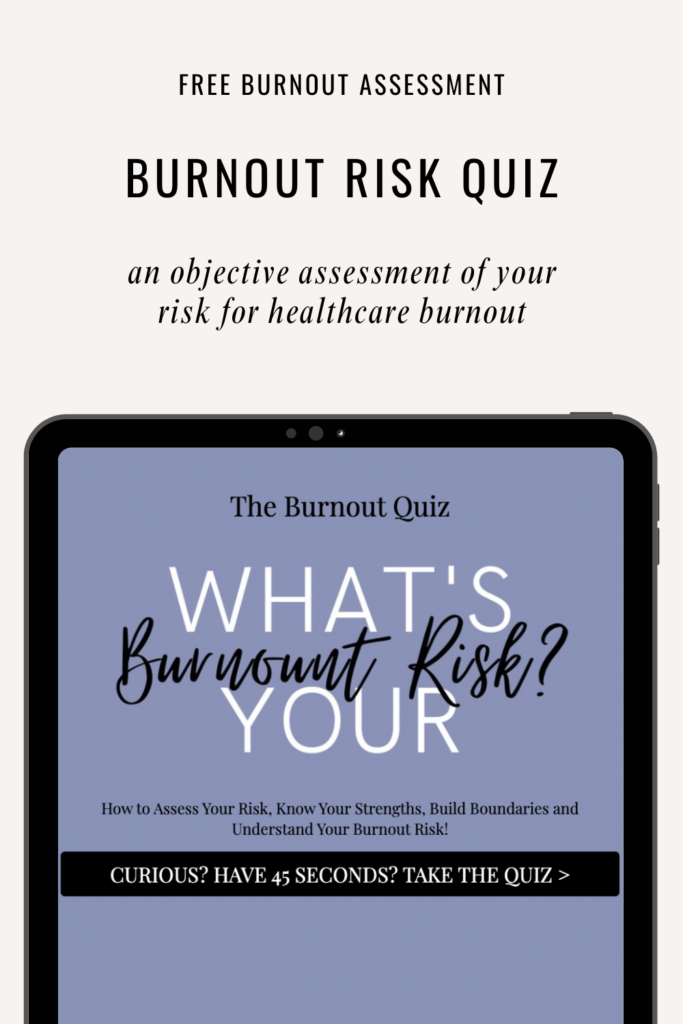I can remember so clearly in PA school the nerves that come along with stepping out of the classroom, a place where I felt relatively comfortable after years and years of schooling, and into the clinical rotation setting. It’s such a monumental transition from gaining knowledge, learning and absorbing, to putting that knowledge to work out in the work on a PA school rotation.
From acquiring to applying. It’s a pivotal moment in our education and it’s a big shift in what we are learning along the way.
On this episode of The PA Is In I’m going to review 10 things to help students to rock clinical rotations and also help clinically practicing PAs to rekindle their determination to take incredible care of their patients. Let’s do it!
Watch on YouTube

1 – Be Clear on Rotation
Clarity is important when it comes to clinical rotations. From asking questions about expectations from your clinical preceptor to understanding the end of rotation exams from your programs, seeking to be clear in what is expected of you is key.
Being clear is also important in setting your goals of what you are hoping to achieve, learn and glean from each specific rotation. The more clear you are on your goals the more targeted you can be about making sure you are learning what you need to learn.
For example, when I was on my surgery rotation there was another student who was on rotation that overlapped with mine. I was super interested in surgery and, after about a week on rotation I was sold on pursuing a career in the OR to some degree. The other student was interested in medicine, specifically internal medicine.
The surgical residents that were helping to precept us asked about our career aspirations and knew this. They would have the other student do things like H&Ps and communicating with the medical team because that was her wheelhouse/interest. For me they leaned heavier on time in the OR and performing procedures.
My surgery rotation would have been an entirely different experience if I hadn’t clearly communicated how much I loved surgery and wished to pursue it.
Even if you don’t know the specific end destination you want your career to take, remember the goal of clinical rotations is for you to both apply your clinical knowledge and learn more. These are the cases that stick in your memory. These are the things you need to see first hand. These are the skills you will someday be asked to perform once you are a practicing clinician.
2 – Be Honest
Honesty truly is the best policy. Let me say it simply: don’t lie.
Don’t say that you asked a question you didn’t ask. Don’t make up physical exam results that you didn’t perform.
Seriously – your preceptor would love for you to say that you don’t know, you didn’t ask, you didn’t look, listen or check than for you to make something up.
If you don’t know, say so.
If a patient asks you something and you are unsure, excuse yourself to look it up, or ask someone who knows.
It’s better to give honest information slowly than inaccurate answers quickly.
Being honest will serve you well on rotations and beyond.
3 – Be Early to Rotation
You know that saying that if you’re on time, you’re late? That applies to your report times for rotations as well.
I can remember the nerves that come along with sitting and waiting – in your car, in the waiting room, in the staff office or the locker room – the jittery anticipation of another day of learning and taking care of patients. The waiting of being early stressed me out.
Which is kind of funny if you think about it – I was early on purpose. But that made me more nervous.
I wish that I had asked what I could do to help, had raised my hand, chipped in, printed out a list, helped the nurses, and been intentional with that time. If being early makes you nervous, bring some notes or something to read.
Pro tip: Don’t be on your phone.
If you’re going to be reading it’s better to not be doing it on your phone. I know that a lot of information is on your phone these days… which kind of makes me feel like an old lady… but staying off your phone is super important.
Come to think of it, I should have made being present and off your phone it’s own item on this list. Unless you are specifically asked to look something up or use a medical app to calculate a risk, etc, keep your phone away.
I know that your preceptor will have theirs out – but to be completely honest here – they have a different set of rules and standards. Just because they are on their phone doesn’t mean that you can be.
4 – Be Quiet
Learn to read the room. Ask your preceptor how and in what capacity they welcome your involvement with taking care of patients.
You can be eager to learn, an active participant in taking care of patients and also understand when it is and isn’t OK to ask questions. This is particularly applicable in the OR or in high stress situations, but it also is true when you are seeing a routine outpatient visit.
Alone in the room vs. in the room with your preceptor.
5 – Be Eager
Eagerness to learn, to help and to be positive is possibly the most important thing you can carry forward.
One of the most amazing things about being a student is that you haven’t been jaded by the system!
That eagerness that you have as a PA student is a gift.
Raise your hand to help with everything from procedures to transporting patients and from changing the table paper to rooming the patients. Students who are helpful will be reviewed well, well-liked and seen as an asset.
See each rotation as a prolonged interview. Your eagerness will help you to gather strong recommendations and help you with your rotation grading from your preceptor.
6 – Be Curious
One of the most important questions that you can ask yourself as a student is WHY. Knowing what to do in a clinical situation is one thing. Understanding WHY is the most important part.
Asking yourself why is how you can develop your own pathways for clinical decision making. Understanding the reasoning behind which labs, imaging, testing are ordered is so important.
Ask yourself and ask your preceptor.
Here’s another pro tip: Instead of asking a simple WHY… ask why with specifics.
Instead of asking why we are ordering that, ask “why a HIDA scan instead of an ultrasound?” This helps to credential you that you know what you’re talking about and understand the alternatives.
That curiosity will serve you well as a student and carry you into your career.
7 – Be Kind
Kindness is free. It costs nothing to be kind. To your patients, to the staff, to your preceptor, to other students.
Indiscriminate kindness is so important in life and on rotations. I’m talking the environmental services staff, the patient transporters, the techs and medical assistants.
Being kind and generous will cost you nothing.
Even if those around you are not treating those with kindness, kindness is cool.
Avoid gossip and getting sucked into the lowest common denominator of the culture if it’s negative.
8 – Be Confident
In case no one has reminded you of this today – you’ve got this.
You know the material. You know so much more than you think that you know.
Be confident in your knowledge.
One of my biggest pet peeves with students is when they answer the question I asked them with a question.
Answering confidently, even if you aren’t sure, just take a shot – and make your best guess.
9 – Be Humble
Alongside that confidence it’s important to be humble on rotations. Remember that, for all the skills and knowledge you do have, there is so much to learn.
Being humble keeps you learning.
And continuing to learn is crucial to becoming an awesome, competent clinician!
10 – Be Introspective
The awesome part about being a student on clinical rotations is that you get to make calls, diagnoses, plans and treatment plans in a safe environment. Alongside that is feedback from your preceptors.
Take that feedback to heart. You have to have a thick skin – I can still remember a scathing review from one of my ER preceptors about sepsis and my lack of ability to recognize it and clearly understand the treatment plan.
That feedback triggered some serious introspection on my part. It also prompted me to learn the heck out of sepsis protocol, symptoms and I can tell you that I think of that preceptor every time one of my patients met sepsis criteria in my career.
Introspection can be a little scary but it’s a necessary part of improvement.
Wrap Up of Rocking Your Next Rotation
Here’s what you need to be able to smash those clinical rotations out of the park:
Be clear, honest and early.
Remember to be quiet, eager and curious.
Kindness is free.
Confidence and humility go hand-in-hand.
Introspection is crucial to learning from feedback and improving as a student and provider.
There you have it, my top 10 tips will help you on rotation and in your career, too. If you liked this post, check out this advice for New Graduate PAs.
